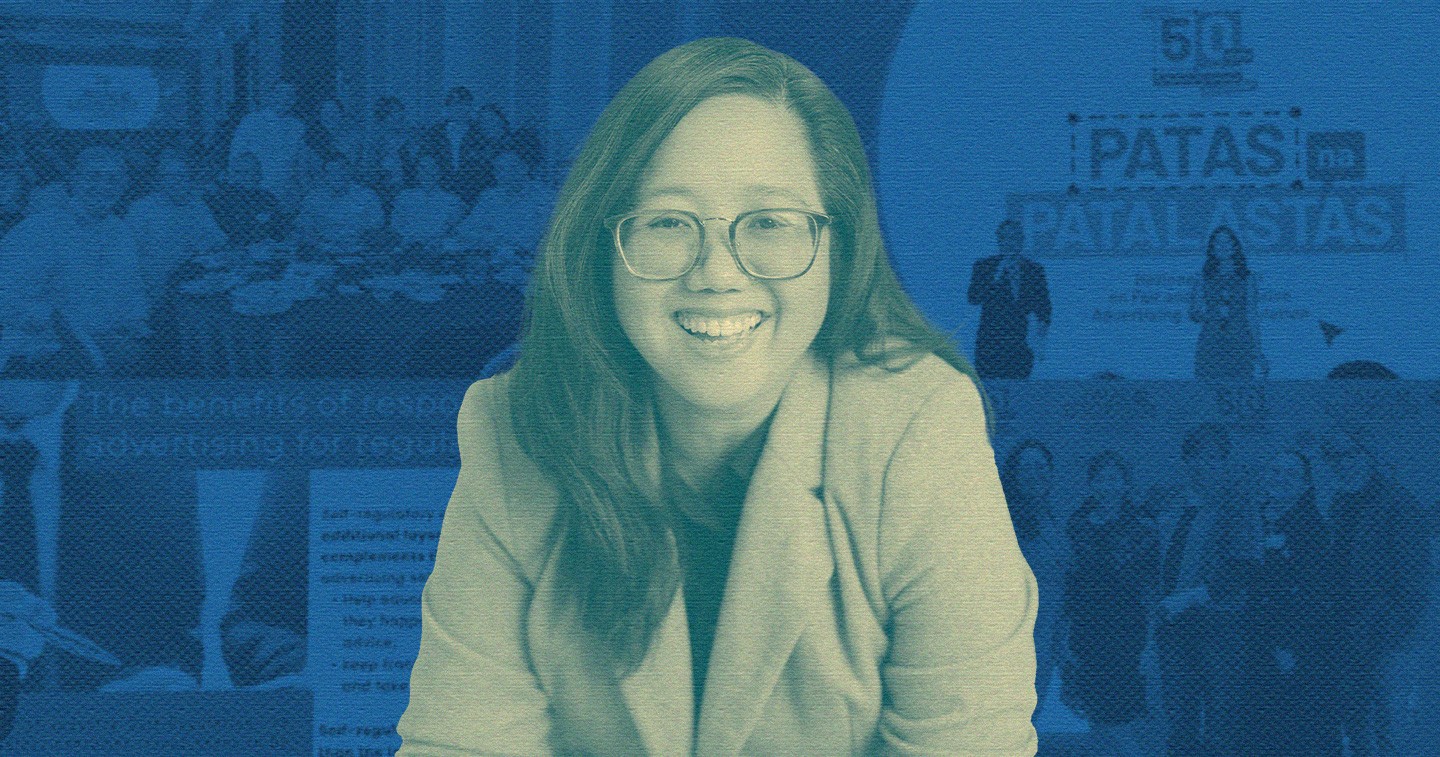MANILA, PHILIPPINES — In this story, Amrei Dizon, Founder and Chief Creative Officer of Vitalstrats Creative Solutions and Co-founder of Introspeck Management Consultancy, shares insights from the recently-held “Patas na Patalastas” National Summit on Fair and Progressive Advertising Self-Regulation. The forum tackled pressing industry issues on digital platforms, AI, and ecommerce with industry leaders and regulators.
The Philippine advertising industry is no stranger to change. For over 50 years, self-regulation has been at the core of ensuring ethical standards and protecting consumers. However, with the rapid rise of digital platforms, artificial intelligence (AI), and ecommerce, the landscape is evolving faster than ever before. This raises important questions: How can the industry maintain ethical practices while embracing innovation, and are we ready to adopt global best practices to protect consumers in this digital age?


At the “Patas na Patalastas” National Summit on Fair and Progressive Advertising Self-Regulation, industry leaders and regulators gathered to explore these pressing issues. In his keynote address, Rupert “Jun” Nicdao, Jr., Chairperson of the summit, outlined how the industry must adapt to this digital transformation while upholding ethical standards.
Challenges and opportunities in the Digital Age
Jun’s opening keynote emphasized the profound changes brought by digital platforms and AI. The rise of new advertising formats such as influencer marketing, native ads, and ecommerce has opened up exciting possibilities for brands. But with these innovations come challenges. The complexity of digital content, combined with its sheer volume, makes it increasingly difficult to regulate through traditional self-regulatory frameworks.
“The rapid pace of technological advancements – AI, social media, ecommerce – presents both challenges and opportunities for maintaining ethical standards in advertising,” he remarked. He highlighted how the proliferation of content is outpacing the capabilities of existing processes to monitor and regulate effectively.
This evolving landscape demands innovation, not just in how we create ads but in how we ensure they remain truthful, fair, and ethical.
A Legacy of self-regulation in Philippine advertising
The Philippines has a long history of self-regulation in advertising, dating back over 50 years to the establishment of the Philippine Board of Advertising (PBA) in 1974. This evolved into the AdBoard in 1989, and by 2008, the Ad Standards Council (ASC) took the reins to ensure that advertisements meet the highest ethical standards. The ASC, in collaboration with the Department of Trade and Industry (DTI), plays a pivotal role in protecting consumers and promoting fair trade.
The ASC was highlighted during the summit for its role in adapting to the digital era. In 2023 alone, the DTI handled 137 cases of misleading advertisements, reflecting the need for a proactive regulatory approach. With a renewed Memorandum of Understanding (MOU) between the DTI and ASC, the partnership strengthens consumer protection by combining pre-screening and post-screening of ads.
Evolving regulation with the Internet Transactions Act
The Internet Transactions Act (R.A. 11967) was a focal point of the summit, as it addresses the growing ecommerce market in the Philippines. The act establishes an ECommerce Bureau and promotes the development of an ecommerce trust mark. This trust mark will help consumers identify credible online sellers, ensuring that businesses follow truthful advertising practices.
DTI Undersecretary Jean Pacheco, who represented the agency during the “Safeguarding Consumers in the Digital Platforms” panel, stressed that online transactions must adhere to the same ethical standards as traditional advertising. The act mandates transparency and honesty in digital ads, putting pressure on both businesses and regulators to ensure compliance in this rapidly growing space.

Panelist Neil Trinidad, Chief Marketing Officer of GCash, added insights on the challenges of cybersecurity in the digital marketplace. He shared that GCash had used AI to prevent over 2.2 million account takeover attempts, showing how advanced technology can safeguard consumer trust in a digital world.
Australia’s advertising self-regulation

Richard Bean, a representative from the International Council for Advertising Self-Regulation (ICAS), shared valuable insights from Australia’s experience in advertising self-regulation. He explained that the Ad Standards Community Panel in Australia consists of members from diverse backgrounds, including individuals from various walks of life but without direct representatives from the advertising industry. This ensures that the ad screening process remains impartial and is not influenced by vested industry interests.
This setup sparked a reflection on whether the Philippines is ready to adopt a similar model, balancing the perspectives of industry professionals with those of the general public. In Australia, the focus is on maintaining independence to avoid conflicts of interest. However, in the Philippines, with its unique advertising landscape, would such a shift toward greater public involvement in the regulation process be effective?
Interestingly, Richard also noted that Australia has not yet fully adopted AI for its ad screening processes, which raised questions about how much trust regulators worldwide are willing to place in technology over human judgment.
AI’s Role in Advertising Regulation
AI was a key topic throughout the summit, particularly in discussions around how it could streamline the regulation of digital ads. Although Australia has yet to implement AI in ad screening, many summit attendees saw its potential to revolutionize the Philippine advertising landscape.
Albert Cuadrante, Chief Marketing Officer of UnionBank, and Neil Trinidad of GCash shared how AI has already transformed their respective sectors by enhancing cybersecurity and preventing fraud. If applied to advertising, AI could:
- Monitor real-time content: Scanning thousands of digital ads instantly to flag misleading or unethical content.
- Automate compliance checks: Integrating AI into pre-screening could allow for more efficient review processes.
- Identify patterns: AI’s data analysis could detect trends in deceptive advertising, helping regulators stay ahead of potential issues.
However, AI comes with its own set of challenges. As several panelists pointed out, AI is only as good as the data it’s trained on. Without proper oversight, AI systems can perpetuate biases or misinterpret cultural nuances. Therefore, human judgment will always be crucial to ensure fairness and accuracy in regulation.

Protecting the most vulnerable
Gregory Banzon, CEO of Century Pacific Foods, stressed an important responsibility for the advertising industry in today’s digital world. With so much content available at everyone’s fingertips, he pointed out the need for the industry to come together and find ways to safeguard the most vulnerable sectors of society, particularly children, the undereducated, the elderly, and the desperate.
“We must find ways to protect these groups, especially since many elderly people have trusted media for so long that they often believe what they see online,” Gregory shared. He highlighted how AI can help identify and filter out harmful messages from unregulated sources, giving the industry a valuable tool to maintain ethical standards and protect those who are most at risk.


Margot Torres, Managing Director of McDonald’s Philippines and former President of both the Philippine Association of National Advertisers (PANA) and the Digital Marketing Association of the Philippines (formerly IMMAP), shared her forward-thinking vision on self-regulation during the summit’s panel discussion. Reflecting on her extensive experience, she emphasized that the future of the Ad Standards Council (ASC) must transcend its current role as merely a screening body.
“We need to move to the next level of regulation. The ASC should evolve into an ethical and moral lighthouse for the industry, inspiring rather than simply enforcing compliance,” Margot said. She believes that as industry leaders, they must champion self-regulation not just for compliance but for its deeper principles of consumer protection and responsible marketing.
For Margot, the value of self-regulation lies in its ability to encourage ethical practices that protect consumers and create long-term trust. She urged her peers to see self-regulation as more than just a checklist of requirements, but as a commitment to uphold the highest standards of integrity in all advertising efforts. Her vision calls for the industry to be proactive, not just in responding to guidelines, but in shaping the future of responsible marketing.
Collaboration for a Better Future
As the summit drew to a close, the focus shifted to the need for greater collaboration between regulators, industry leaders, and global organizations. Perpetuo de Claro, former President of Wyeth Philippines, emphasized the importance of a united approach, where both the government and private sector work together to set standards and enforce regulations.
This collaborative effort should extend to education and training. Johnip Cua, former Chair of the Advertising Foundation of the Philippines, highlighted the need to educate both consumers and industry professionals on their rights and responsibilities in the digital advertising space. The ASC and DTI are already planning joint consumer awareness campaigns to promote ethical advertising and protect consumers from misleading content.
The summit also underscored the importance of tapping into global best practices. Bean’s insights on Australia’s regulatory framework and the role of ICAS highlighted the benefits of learning from other countries’ experiences.

A vision for the future of Philippine advertising
The “Patas na Patalastas” Summit made it clear that the future of advertising in the Philippines lies in a careful balance of innovation and ethics. AI offers promising solutions for streamlining ad screening, but human oversight remains essential to address cultural and ethical nuances. Collaboration between industry, government, and global organizations will be key to creating a regulatory framework that can keep pace with the digital age.
As the Philippine advertising landscape rapidly transforms, now more than ever, it’s crucial for all of us to remain vigilant, collaborative, and committed to ethical practices. This event serves as a powerful reminder that protecting consumer rights and fostering innovation are not mutually exclusive but complementary goals that can shape a more responsible future for the industry.



To achieve this, industry leaders, regulators, and brands must come together in a spirit of partnership and shared responsibility. Continued dialogue and cooperation will be key to navigating the challenges ahead. I will be closely following these developments and keeping you informed about the latest changes in advertising regulations and practices.
As we move forward, I also encourage you to stay engaged. The Araw Values Awards is still accepting entries, and this is an opportunity to showcase how your brand embodies Filipino values while making a positive impact through ethical advertising. Visit advertisingfoundation.com for more information and submit your entries today. Let’s continue to work together in creating a vibrant, responsible, and innovative future for Philippine advertising.

Amrei Dizon is the Founder and Chief Creative Officer of Vitalstrats Creative Solutions, an independent creative agency specializing in digital content production, and Co-founder of Introspeck Management Consultancy, offering tailored solutions for business growth and transformation.









